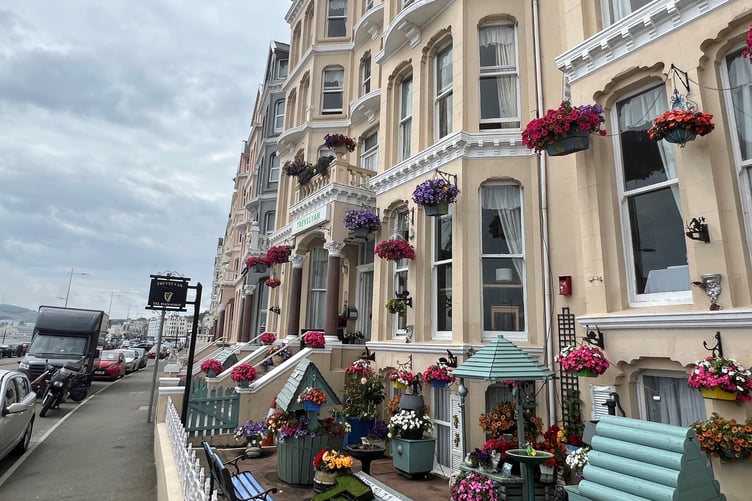The Chamber of Commerce has expressed reservations over government plans to introduce a tourism levy on overnight visitors.
Tynwald last month backed a call for a so-called ‘biosphere levy’ with a potential pilot scheme being considered by the Department for Enterprise over the summer.
Isle of Man Chamber of Commerce has warned that the island’s tourism and hospitality businesses are facing very tough trading conditions, with many in the industry already under pressure from rising costs and labour shortages.
And the organisation said it was essential that any additional costs to tourists are brought in at a level that doesn’t harm the visitor economy.
A spokesperson said: ‘While we recognise the potential benefits of the proposal – particularly if it helps deliver real, visible improvements for residents and visitors alike – our members also have some concerns.’
Listing what it saw as the key risks and concerns, the Chamber said introducing new costs may deter price-sensitive visitors at a time when the sector is still recovering.
It said smaller and seasonal operators may struggle with new collection and reporting requirements and it stressed that transparency was essential - members wanted clarity on how funds would be collected, governed, and reinvested.
Enterprise Minister Tim Johnston was forced to issue an apology after claiming in Tynwald that the island's hotels are 'full all season'. He acknowledged that this was an ‘overstatement’ and not accurate.
The Chamber noted that published occupancy data indicates a more varied picture, with demand fluctuating across the year.
‘This highlights the need for any policy decision – especially one linked to pricing – to be based on accurate, comprehensive data, its spokesperson added.
But the organisation, which represents more than 500 organisations in the island including many in the hospitality sector, said a tourism levy could offer opportunities and potential benefits.
It said a well-managed levy could improve the island’s sustainability credentials and provide long-term investment in trails, heritage, and marketing.
A dedicated fund, separate from general taxation, may ensure more targeted support for tourism-related initiatives, it said.
The scheme could follow international best practice, with pilot testing and flexible design to suit local conditions.
And it pointed out that tourism taxes have proven successful elsewhere when ringfenced and used appropriately – particularly to support marketing and attract more visitors.
The spokesperson said: ‘While tourism taxes can be effective when ringfenced and well-managed, particularly to support marketing and attract more visitors, this may not be the right time to introduce such a measure.
‘Nonetheless, we welcome the opportunity for the sector to contribute to a consultation and agree that open debate on the issue is important.
‘We are committed to working constructively with government to ensure that any future proposal is practical, fair, and sector sensitive. A full, open consultation will be vital to ensuring the levy, if pursued, is shaped by those working on the ground.’
The Enterprise Minister’s comments in Tynwald about hotels being full were greeted with dismay by some hoteliers who said the sector is struggling.
Mr Johnston later accepted his words had caused concern with some businesses.


.jpeg?width=209&height=140&crop=209:145,smart&quality=75)
.jpeg?width=209&height=140&crop=209:145,smart&quality=75)
.png?width=209&height=140&crop=209:145,smart&quality=75)